Key Takeaways
1. The block universe: Past, present, and future coexist
Once you agree that anything exists now elsewhere, even though you see it only later, you are forced to accept that everything in the universe exists now.
Einstein's special relativity revolutionized our understanding of time. It shows that time is not universal but relative, depending on an observer's motion. This leads to the concept of the block universe, where past, present, and future exist simultaneously.
- The "now" moment is subjective and depends on the observer's frame of reference
- Light's finite speed means we always see things as they were in the past
- Events that seem simultaneous to one observer may not be to another
Memory and perception create our experience of time's flow. Our brains store information about past events, creating a sense of history, while lacking information about future events. This asymmetry in information gives rise to our perception of time's arrow, even though, fundamentally, all moments exist equally in the block universe.
2. Quantum mechanics defies intuitive explanations
I agree with Philip Ball that, at more than a hundred years of age, quantum mechanics should move "beyond weird."
Quantum mechanics is often presented as strange or counterintuitive, but this perception largely stems from attempts to describe it in everyday language. At its core, quantum mechanics is a mathematical framework that accurately predicts the behavior of particles at the smallest scales.
- Superposition: Particles can exist in multiple states simultaneously
- Entanglement: Particles can be correlated over large distances
- Wave function collapse: Measurements affect the quantum state
While these concepts may seem bizarre, they are well-supported by experimental evidence. The challenge lies not in the theory itself, but in our attempts to reconcile it with our macroscopic experiences. Instead of focusing on the "weirdness" of quantum mechanics, it's more productive to appreciate its predictive power and practical applications in technologies like lasers and semiconductors.
3. The universe's beginning and end remain speculative
Feel free to believe them—I don't think any evidence speaks against them either—but keep in mind that at this point they're just speculation.
Cosmological models attempt to explain the universe's origin and fate, but many popular theories lack empirical support. While the Big Bang theory is well-established, ideas about what came before or how the universe might end are largely speculative.
- Inflation theory: Proposes rapid expansion in the early universe
- Cyclic models: Suggest repeated cycles of expansion and contraction
- Heat death: Predicts a gradual increase in entropy leading to a cold, uniform universe
These theories often extend far beyond our current observational capabilities. While they may be mathematically consistent, they remain untested hypotheses. It's important to distinguish between established scientific knowledge and creative speculation in cosmology, recognizing the limits of our current understanding.
4. Human consciousness emerges from physical processes
We have never observed an object composed of many particles whose behavior falsified reductionism, though this could have happened countless times.
Consciousness arises from the complex interactions of particles in our brains, following the same physical laws that govern all matter. This view, known as reductionism, is supported by extensive scientific evidence and has no known exceptions.
- Neuroscience has linked specific brain activities to conscious experiences
- No evidence supports the existence of a non-physical "soul" or "mind"
- Quantum effects in the brain, while possible, are not necessary for consciousness
While the exact mechanisms of consciousness are not fully understood, there's no scientific reason to believe it requires anything beyond the known laws of physics. This doesn't diminish the wonder of consciousness but places it firmly within the realm of natural phenomena that can be studied and potentially replicated in artificial systems.
5. Free will is compatible with determinism, but debated
According to the currently established laws of nature, the future is determined by the past, except for occasional quantum events that we cannot influence.
The concept of free will is challenged by our understanding of physics, which suggests that all events are predetermined by prior causes, with only quantum indeterminacy introducing true randomness. However, this doesn't necessarily negate free will.
- Compatibilism: A philosophical view that free will is compatible with determinism
- Libertarianism: Argues that free will requires indeterminism (less scientifically supported)
- Practical consequences: Debates about moral responsibility and criminal justice
While our actions may be determined by prior causes, our subjective experience of making decisions remains. The feeling of free will may be an emergent property of our complex decision-making processes, even if those processes are ultimately governed by deterministic laws.
6. The universe is not fine-tuned for human existence
We have no reason to think the universe was made especially for us, or for life in general.
The fine-tuning argument, which suggests that the universe's physical constants are precisely set to allow for life, is not scientifically supported. This idea often stems from a misunderstanding of probability and the anthropic principle.
- Many different sets of physical constants could potentially support complex chemistry
- Our sample size of universes is one, making statistical arguments unreliable
- The anthropic principle: We observe a universe compatible with our existence because we couldn't exist otherwise
Instead of assuming the universe was designed for us, it's more scientifically sound to recognize that life has adapted to the conditions of the universe. The apparent fine-tuning may be a result of our limited perspective and incomplete understanding of physics.
7. Cosmic consciousness is unlikely but not impossible
Crazy as it sounds, the idea that the universe is intelligent is compatible with all we know so far.
The notion of universal consciousness, while speculative, cannot be entirely ruled out based on current scientific knowledge. However, several factors make it unlikely.
- Size matters: The vast distances in the universe limit information exchange
- Speed of light: Cosmic-scale "thoughts" would take billions of years
- Structure differences: Brain-like structures in the cosmos are superficial similarities
While the universe's large-scale structure resembles neural networks, this analogy breaks down under closer scrutiny. However, hypothetical non-local connections in space-time could potentially allow for faster-than-light information transfer, leaving a small possibility for cosmic-scale information processing.
8. AI poses immediate challenges beyond ethics
The most immediate problems we will have with AIs will come from our ethics, not theirs.
Artificial Intelligence development raises concerns beyond the often-discussed ethical implications of superintelligent AI. More pressing issues relate to the near-term deployment of AI systems.
- AI fragility: Advanced AI systems may be unique and difficult to repair or replicate
- Access inequality: Limited availability of powerful AI could exacerbate social disparities
- Verification challenges: Ensuring AI outputs are reliable and unbiased
Instead of focusing solely on far-future scenarios of AI surpassing human intelligence, we need to address the immediate challenges of integrating AI into society. This includes questions of ownership, accountability, and the potential for AI to amplify existing societal inequalities.
9. Predictability in human behavior has limits
Human behavior is partially predictable, but it's questionable that it'll ever be fully predictable.
Human behavior, while influenced by deterministic processes, remains challenging to predict fully due to various factors.
- Complexity: The human brain's intricate structure makes exact modeling difficult
- Quantum effects: May introduce true randomness at the neuronal level
- Computational irreducibility: Some processes may not be predictable faster than they occur
While statistical predictions about human behavior are possible and often accurate, individual actions retain an element of unpredictability. This unpredictability doesn't necessarily imply free will but reflects the practical limitations of our predictive capabilities.
10. Science and religion can coexist, serving different purposes
It isn't only that I think Stephen Jay Gould got it right when he argued that religion and science are two "nonoverlapping magisteria." I will go a step further and claim that scientists can learn something from organized religion.
Science and religion address different aspects of human experience and can coexist without conflict when their respective domains are respected. Science provides explanations for natural phenomena, while religion often addresses questions of meaning, purpose, and values.
- Science: Deals with empirically testable hypotheses about the natural world
- Religion: Addresses existential questions and provides moral frameworks
- Mutual benefits: Science can learn from religion's community-building aspects
Recognizing the limits of scientific inquiry allows for a more nuanced understanding of human knowledge. While science has dramatically expanded our understanding of the universe, it cannot answer all questions, particularly those related to subjective experience and personal meaning. Embracing this complementarity can lead to a richer, more holistic worldview.
Last updated:
FAQ
What's Existential Physics about?
- Exploration of Big Questions: Existential Physics by Sabine Hossenfelder examines fundamental questions about existence, time, and the universe, blending insights from physics with philosophical inquiries.
- Physics and Philosophy Connection: The book argues that physics can provide insights into philosophical questions about reality and our place in the universe, emphasizing the importance of scientific principles in addressing existential queries.
- Accessible to Non-Experts: Hossenfelder aims to make complex scientific concepts approachable for readers without a physics background, bridging the gap between science and public understanding.
Why should I read Existential Physics?
- Engaging and Thought-Provoking: The book challenges readers to think critically about their beliefs and the nature of reality, with Hossenfelder's engaging writing style making complex topics accessible.
- Combines Science and Philosophy: It offers a unique perspective by merging scientific knowledge with philosophical questions, encouraging reflection on existence and the universe.
- Addresses Pseudoscience: Hossenfelder clarifies misconceptions about physics and counters pseudoscientific claims, providing a solid foundation for understanding the scientific method.
What are the key takeaways of Existential Physics?
- Nature of Time: The book discusses how time is perceived differently in physics, challenging the conventional understanding of time as linear.
- Determinism vs. Free Will: Hossenfelder explores the implications of quantum mechanics on free will, suggesting that the future is largely fixed, with randomness introduced by quantum events.
- Existence of Consciousness: The author argues that consciousness arises from particle interactions, challenging dualistic views of the mind and body.
What are the best quotes from Existential Physics and what do they mean?
- "Grasp the Universe as it is": This quote by Carl Sagan emphasizes understanding reality through scientific inquiry rather than comforting delusions.
- "The past, present, and future exist": This statement challenges our intuitive understanding of time, suggesting all moments are equally real.
- "The future is fixed": This highlights the deterministic nature of the universe, acknowledging the role of randomness from quantum mechanics.
How does Existential Physics address the concept of time?
- Time as a Dimension: Hossenfelder explains that time is treated as a dimension in physics, part of the four-dimensional space-time continuum.
- Relativity of Simultaneity: The book discusses Einstein's theory of relativity, illustrating how time is relative to the observer's frame of reference.
- Block Universe Theory: Hossenfelder introduces the idea that all moments in time exist simultaneously, challenging the notion of a singular "now."
What does Existential Physics say about free will?
- Determinism and Quantum Mechanics: The book argues that nature's laws are deterministic, with quantum mechanics introducing uncontrollable randomness, suggesting free will may be an illusion.
- Philosophical Perspectives: Hossenfelder critiques compatibilism, which posits that free will can coexist with determinism, emphasizing its misalignment with scientific causality.
- Implications for Human Behavior: The author suggests decisions result from complex computations based on input and experiences, rather than free will.
How does Existential Physics relate to consciousness?
- Consciousness as Emergent: Hossenfelder posits that consciousness arises from particle interactions in the brain, challenging the need for non-physical processes.
- Material Basis of Thought: The book argues against dualism, asserting that mental processes can be explained through physical interactions.
- Complexity of Conscious Systems: While consciousness is complex, it is fundamentally rooted in physical laws, inviting readers to consider a purely physical understanding of the mind.
What are the implications of the block universe theory presented in Existential Physics?
- All Moments Are Real: The theory suggests past, present, and future exist simultaneously, challenging the traditional view of time as linear.
- Reevaluation of Existence: It prompts a reevaluation of existence, implying every moment in time is equally valid and real.
- Philosophical and Scientific Intersection: The theory bridges philosophical inquiries about existence with scientific understanding, illustrating how physics informs profound questions about life.
How does Existential Physics address the concept of knowledge?
- Knowledge and Predictability: Hossenfelder discusses the limits of predictability in science, highlighting the dynamic nature of knowledge and its growth over time.
- Role of Scientific Theories: The book argues that scientific theories evolve with new discoveries, encouraging readers to embrace uncertainty in scientific inquiry.
- Interconnectedness of Knowledge: Hossenfelder illustrates how advancements in one field can lead to breakthroughs in another, fostering a holistic view of knowledge.
What does Existential Physics say about the nature of reality?
- Reality as Mathematical: Hossenfelder explores the idea that reality may be fundamentally mathematical, inviting readers to consider the implications of a mathematical foundation for existence.
- Subjectivity of Experience: The book emphasizes that our understanding of reality is shaped by perceptions and experiences, which can differ from objective truths.
- Scientific Inquiry as a Pathway: Hossenfelder advocates for scientific inquiry as a means to uncover reality, grounding beliefs in scientific understanding rather than speculation.
How does Existential Physics challenge traditional scientific narratives?
- Critique of Fine-Tuning Arguments: Hossenfelder critiques the fine-tuning argument for a creator, emphasizing that nature's constants do not require explanations beyond current understanding.
- Questioning Multiverse Theories: The book challenges the multiverse hypothesis, suggesting it does not provide meaningful explanations for nature's constants.
- Emphasis on Limits: Hossenfelder highlights the limits of scientific inquiry, encouraging readers to embrace uncertainty and recognize the boundaries of scientific understanding.
What role do interviews play in Existential Physics?
- Diverse Perspectives: Interviews with physicists and philosophers provide insights into complex topics like consciousness and the universe, enriching the narrative.
- Real-World Applications: Expert opinions connect theoretical concepts to real-world implications, helping readers understand how scientific advancements influence existence and morality.
- Engaging Format: The conversational format makes the content relatable, showcasing the human side of science and the thoughts of those grappling with profound questions.
Review Summary
Existential Physics by Sabine Hossenfelder explores fundamental questions about the universe through a physicist's lens. Readers appreciate Hossenfelder's no-nonsense approach, clear explanations, and skepticism towards unproven theories. She distinguishes between scientific, unscientific, and ascientific concepts, challenging popular speculations. The book covers topics like free will, consciousness, and the nature of time. While some find her style refreshing and informative, others feel her arguments are overly dismissive or difficult to follow. Overall, the book stimulates thought and debate about the intersection of physics and philosophy.
Similar Books


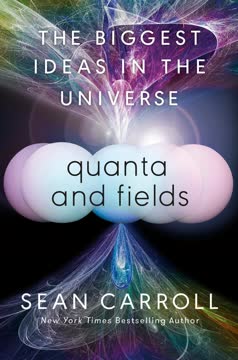
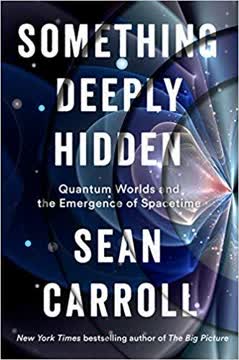
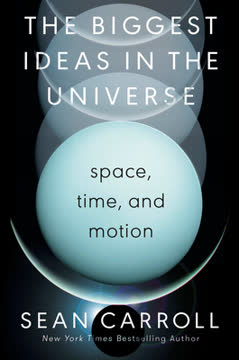
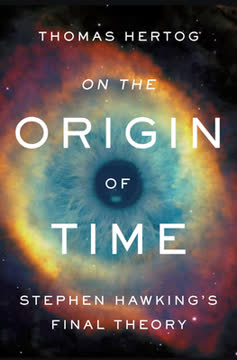
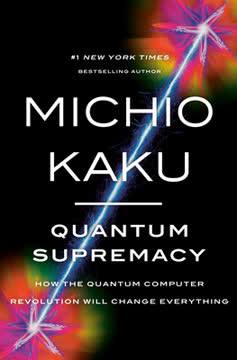

Download PDF
Download EPUB
.epub digital book format is ideal for reading ebooks on phones, tablets, and e-readers.





